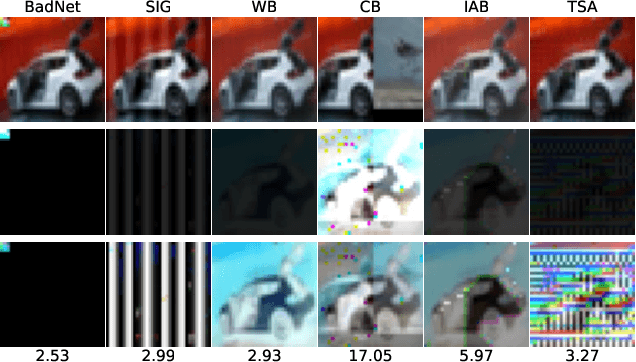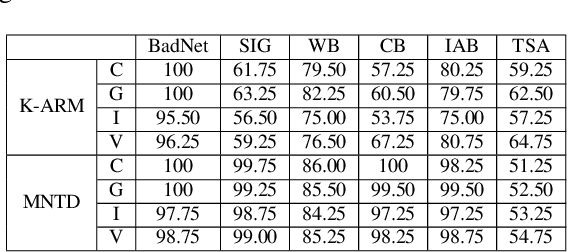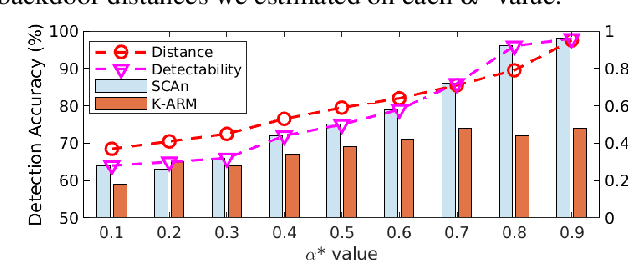Understanding Impacts of Task Similarity on Backdoor Attack and Detection
Paper and Code
Oct 12, 2022



With extensive studies on backdoor attack and detection, still fundamental questions are left unanswered regarding the limits in the adversary's capability to attack and the defender's capability to detect. We believe that answers to these questions can be found through an in-depth understanding of the relations between the primary task that a benign model is supposed to accomplish and the backdoor task that a backdoored model actually performs. For this purpose, we leverage similarity metrics in multi-task learning to formally define the backdoor distance (similarity) between the primary task and the backdoor task, and analyze existing stealthy backdoor attacks, revealing that most of them fail to effectively reduce the backdoor distance and even for those that do, still much room is left to further improve their stealthiness. So we further design a new method, called TSA attack, to automatically generate a backdoor model under a given distance constraint, and demonstrate that our new attack indeed outperforms existing attacks, making a step closer to understanding the attacker's limits. Most importantly, we provide both theoretic results and experimental evidence on various datasets for the positive correlation between the backdoor distance and backdoor detectability, demonstrating that indeed our task similarity analysis help us better understand backdoor risks and has the potential to identify more effective mitigations.
 Add to Chrome
Add to Chrome Add to Firefox
Add to Firefox Add to Edge
Add to Edge